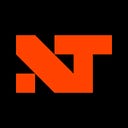Understanding Futures Expiration And First Notice Date
Learning to trade futures requires a thorough understanding of all the unique contract specifications in the markets you will be trading. Two essential concepts futures traders need to master are expiration date and first notice date (FND). These contract specifications are unique across the many different futures markets available to trade.
Let’s explore these concepts to help you manage your futures trading like a pro.
What Is A Futures Expiration Date? The Final Countdown
At its core, a futures contract is an agreement to buy or sell a commodity or financial instrument at a predetermined price (the price the trade is entered) on a specific date (the expiration date) in the future.
For a cash-settled futures contract, like E-mini S&P 500 index futures, the expiration date is the last day the contract is valid and can be traded.
If you are trading a physically delivered futures contract, you probably don’t want 1,000 barrels of crude oil or 25,000 pounds of copper delivered to your house. Don’t worry — to avoid delivery, you can close your position at least two days prior to the FND or NinjaTrader will do it for you.
What Does Cash-Settled Vs. Physically Delivered Mean?
Futures contracts come in one of two delivery styles: cash-settled and physically delivered.
Cash-settled
It’s important to note here that the majority of traders will close their cash-settled positions prior to the futures expiration date to avoid the costs and delays of having the broker and exchange settle the contract.
Please Note:
Like financial futures and some commodities, cash-settled futures are settled in cash based on the underlying asset’s final settlement price at contract expiration. There is no physical exchange of goods–just a financial transaction.
Physically-settled
On the other hand, producers of commodities sometimes use the futures market to hedge against future price changes in the commodities they produce or need for their businesses.
For example, a farmer might sell futures contracts on the crops they produce to lock in a price to ensure stable income despite market fluctuations. Similarly, an oil refinery might buy crude oil futures to hedge against rising oil prices. While hedgers are more closely tied to the physical commodity, many smaller traders will choose to close positions in the market before the FND to avoid physical delivery.
Sample Futures Expiration Dates:
- E-Mini S&P 500: quarterly cycle; June 21, 2024 (June contract)
- Crude oil: monthly cycle; May 22, 2024 (June contract)
- Gold: semimonthly cycle; June 26, 2024 (June contract)
To determine the exact expiration date or whether the contract you are trading is cash-settled or physically delivered, visit the CME website for a complete list of contract specifications.
FND: An Early Warning System
The First Notice date (FND) is an essential contract specification for physically delivered futures markets. This date is specified by the exchange and indicates the first day on which the futures contract buyer may be called upon to accept delivery of the contract’s underlying asset.
For retail traders holding positions in a physically delivered contract, it is crucial to track the FND and close or roll your position at least two days prior to the FND.
A futures broker like NinjaTrader will automatically close any position that’s at risk for assignment of delivery. However, in physically settled futures, it’s always in the trader’s best interest to control and manage positions by acting before the FND.
Sample FNDs:
- E-Mini S&P 500: n/a (cash-settled)
- Crude oil: monthly cycle; May 23, 2024 (June contract)
- Gold: semimonthly cycle; May 31, 2024 (June contract)
Position Rollover: Keeping The Trade Alive
Rollover is a futures trading term that allows a trader to maintain their current position as the contract expiration date or FND approaches.
Here the trader will close the current position and open a new one in the next contract month, effectively “rolling” the position forward. This tactic is common among swing traders who want to maintain their exposure to a commodity or financial instrument without dealing with the worries of expiration, delivery, and settlement.
Analysis Rollover: Tracking The Front Month
The front month refers to the futures contract with the nearest expiration date and generally with the highest daily trading volume and open interest. Because it’s closest to maturity, the front month contract typically reflects the most immediate supply and demand dynamics for the underlying asset, making its price a closely watched indicator by traders and investors for short-term market trends and price movements.
As the front month contract approaches expiration, trading activity shifts to the next closest contract, which becomes the new front month.
NinjaTrader automatically displays a notification for those markets that are rolling over to the next contract month. You can also manually specify and update an expiring contract month into a new front month contract for charting analysis, trading, quote lists, and other tools in the NinjaTrader platforms. (Figure 1)
Figure 1: Rollover notification when logging into the NinjaTrader Desktop platform.
Learn more about rollover with our free livestream recording:
Understanding the nuances of futures expiration dates, FNDs, and the concept of rollover is paramount in futures trading. Remember that every futures contract can have a unique expiration date, first notice date (when applicable), and settlement style.
Whether you’re a seasoned veteran or new to trading, contract specifications can influence your symbol selection, risk management, and trading decisions. By mastering these concepts, not only will you navigate the futures markets with greater agility, making fewer mistakes, but you’ll be able to harness the full potential of your trading.
We’re Live Every Trading Day
Prep for the trading day ahead, analyze the markets in real time, and explore our award-winning platform during our daily livestream. Watch live here or catch what you missed on our YouTube channel.
Trade Futures With NinjaTrader
Haven’t signed up for your free NinjaTrader account yet? Get started today with a 14-day trial of live simulated futures trading.
This article was originally published on NinjaTrader.com: https://ninjatrader.com/futures/blogs/understanding-futures-expiration-and-first-notice-date/
